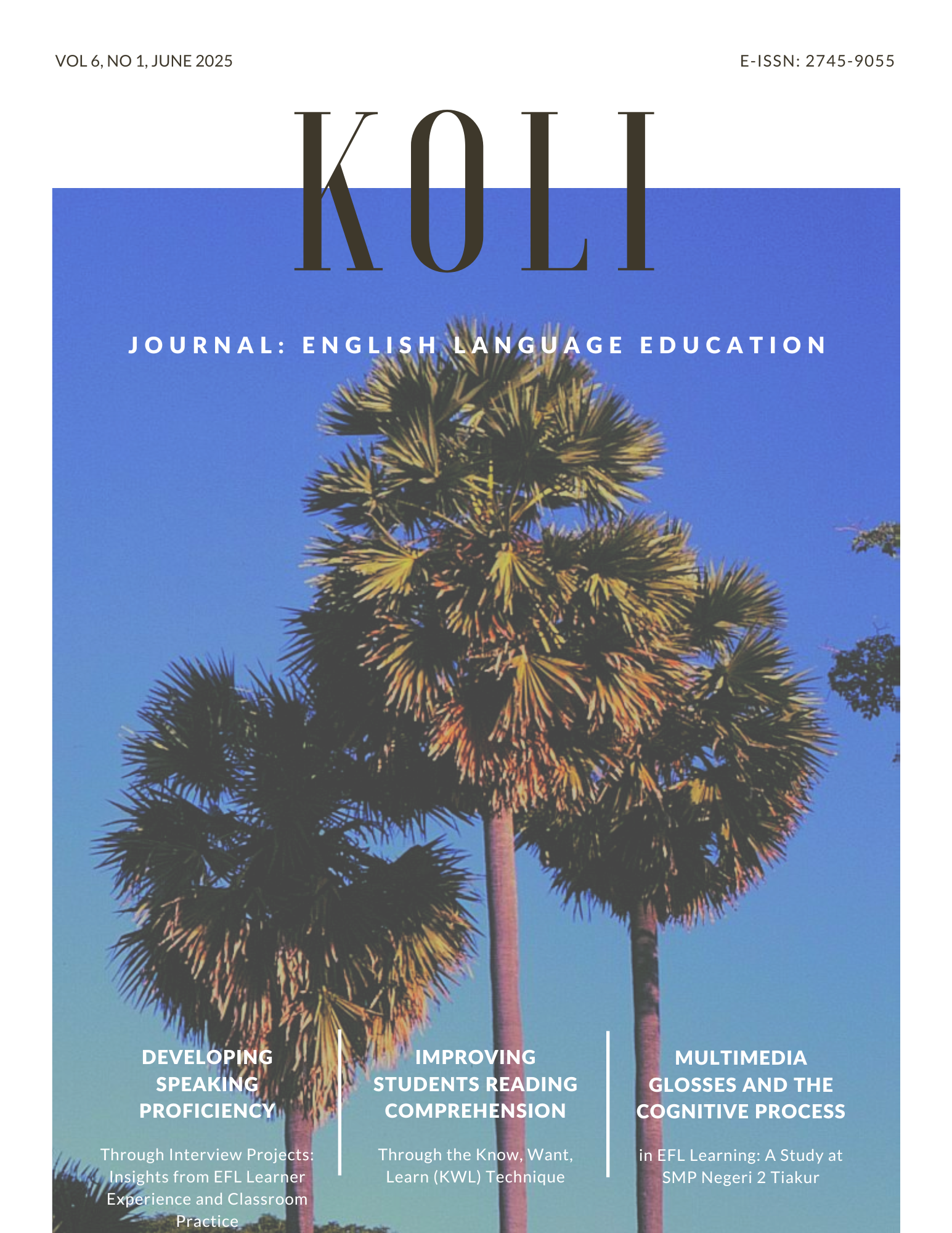Mastering English Vocabulary in a Rural EFL Context: Students’ Difficulties and Learning Strategies
Abstract
This study investigates the difficulties and strategies employed by second-grade students at SMP PGRI Kaiwatu in mastering English vocabulary. Using a descriptive qualitative method, data were collected through semi-structured interviews and a questionnaire comprising 15 statements addressing obstacles such as pronunciation, spelling, word meaning, appropriate vocabulary usage, connotation, and grammar. The study involved 24 students, with a purposeful selection of 9 participants representing varying proficiency levels (low, middle, high). Key findings reveal that approximately 93% of students struggle with the differences between English spelling and pronunciation, while 96% face difficulties with similar-looking words having different meanings. Only 29.62% confidently use vocabulary appropriately, and 92.59% struggle with understanding word connotations. Grammar also poses challenges, as only 66.67% of students effectively use grammar-related vocabulary in sentences. To overcome these challenges, students employ strategies such as practicing with peers (24 students), using dictionaries (23 students), and seeking teacher assistance (22 students). Additionally, some students use multimedia resources (21 students), contextual sentence arrangement (15 students), and attend English courses (9 students). Interviews highlight that high-level students emphasize vocabulary's importance but struggle with pronunciation and meaning, while medium and low-level students find verbs, memorization, and context-specific usage particularly challenging. The teacher plays a critical role in addressing these issues by using group work, direct speaking practice, and vocabulary-building exercises. The findings indicate that while students face significant obstacles in learning vocabulary, they demonstrate strong motivation and adopt various strategies to enhance their skills. Teachers' guidance and tailored approaches are vital in supporting students' progress and improving their overall language proficiency.
Downloads
Copyright (c) 2025 The Author(s)

This work is licensed under a Creative Commons Attribution-NonCommercial-ShareAlike 4.0 International License.











